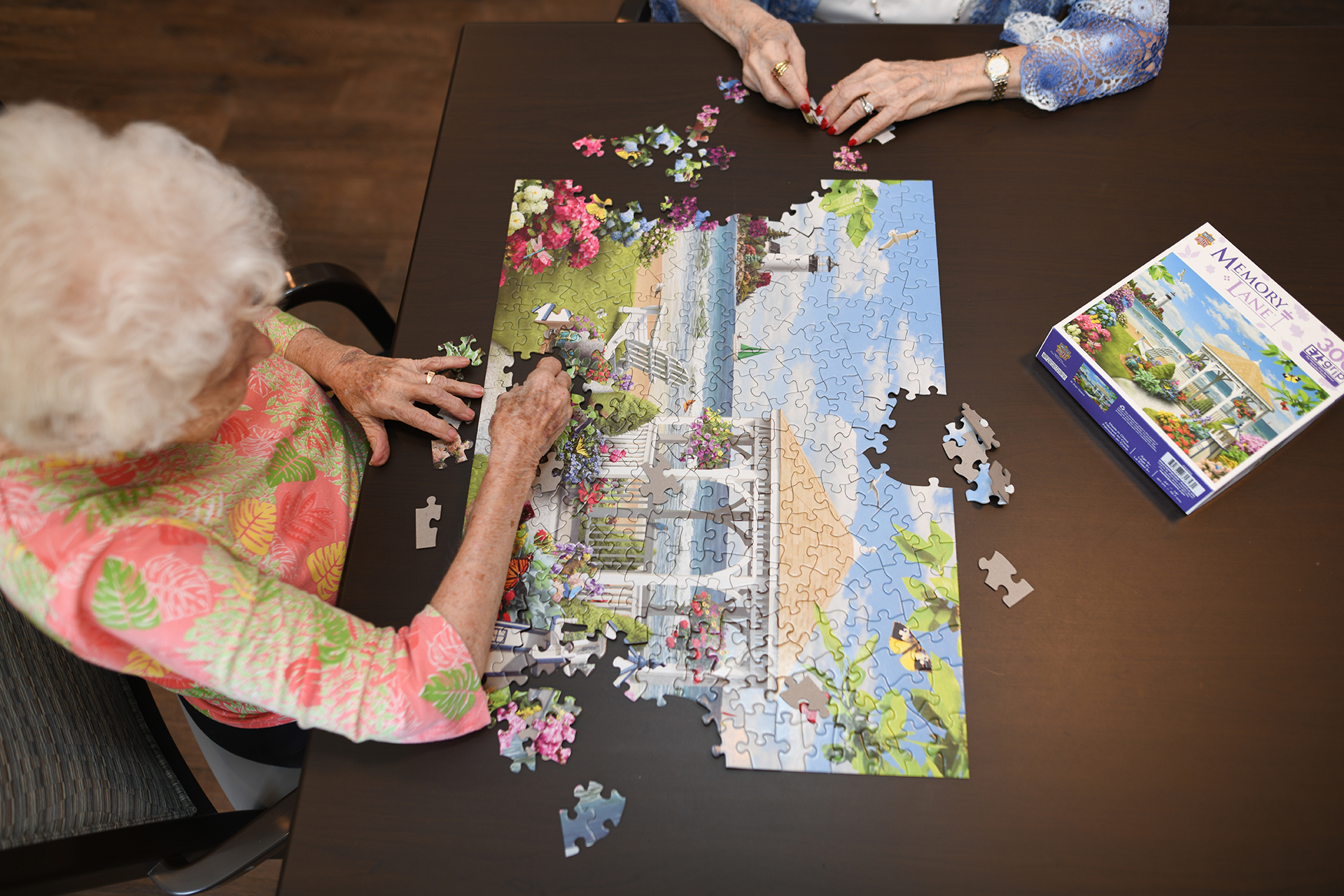Supporting Engagement and Emotional Well-Being for Those with Dementia

A couple of friends enjoy the sunshine on the patio while someone else reads a book. Others have coffee and talk about the news of the day. It all sounds like a perfectly lovely morning at New Pond Village, a continuing care retirement community (CCRC) in Walpole, MA. Only, this is the memory care neighborhood, catered to caring for those living with Alzheimer’s and other forms of dementia, and these activities are very intentional parts of the residents’ busy day.
“Keeping all residents engaged is a very big part of what we do here,” says Carolyn Roycroft, program director for the campus who was previously head of the mind and memory care neighborhood. “It provides them with structure, purpose and a routine, which helps them thrive.”
Alzheimer’s and other forms of dementia can cause rapid and pronounced changes in people’s cognitive and physical health. One of the first signs of the disease is a person’s withdrawal from their normal activities. Georgie Hutton and her siblings saw it in their sister, Carol, who was a resident of New Pond Village’s independent living neighborhood. “We noticed that she was withdrawing more and not going to meals, she would take them in. Then it was getting more apparent she wasn’t aware of what day it was,” Hutton recalls.
Soon after moving to the memory care neighborhood, however, Hutton says “a smile was cropping up on her face. She was making friends, had a place to go eat and the staff incorporated her. Carol likes to think of herself as an assistant to several staff members and she helps them arrange flowers once a week. She’s engaging in activities.”
There is a schedule of six to eight activities daily, including time for exercise, but there’s also flexibility. “If one thing isn’t engaging our residents we move on. Whatever it is that interests a resident that day, we focus on,” says Roycroft. The routine also helps residents through transitions during the day, which can otherwise be challenging for someone with dementia. “We have a very high-functioning memory care neighborhood. It’s not only an expectation that residents are involved, but they also want to help, they want to have tasks.” Carol, she says, “likes to take charge. You would think she works here.”
Many describe those with dementia as disappearing before their eyes. But New Pond Village Mind and Memory Care Director Kara Miller says research shows, “The amygdala, which controls and perceives emotions, is still working until the very advanced stages of dementia. We do a lot of education on that to make sure associates are engaging with residents. Their emotional well-being is our top priority.”
Associates are trained to read and respond to non-verbal cues from memory care residents, who are often unable to find the right words to communicate what they’re thinking or feeling. It’s important, says Miller, “because that emotional part is affecting everything else.”
Dementia is irreversible. That is the harsh reality that both families and caregivers must navigate in caring for their loved ones. “When people have a dementia diagnosis, there are losses every day,” says Miller, “so we really do enter their world and meet them where they’re at in the disease process. Everyone progresses differently.”
For Carol, since moving to the mind and memory care neighborhood, “It’s like her decline paused. She may not know what day of the week it is,” says Hutton, but when she and her siblings have their weekly video call with Carol, “She knows she’s talking with us and she’s giggling, she’s happy. From a family standpoint were all thrilled.”